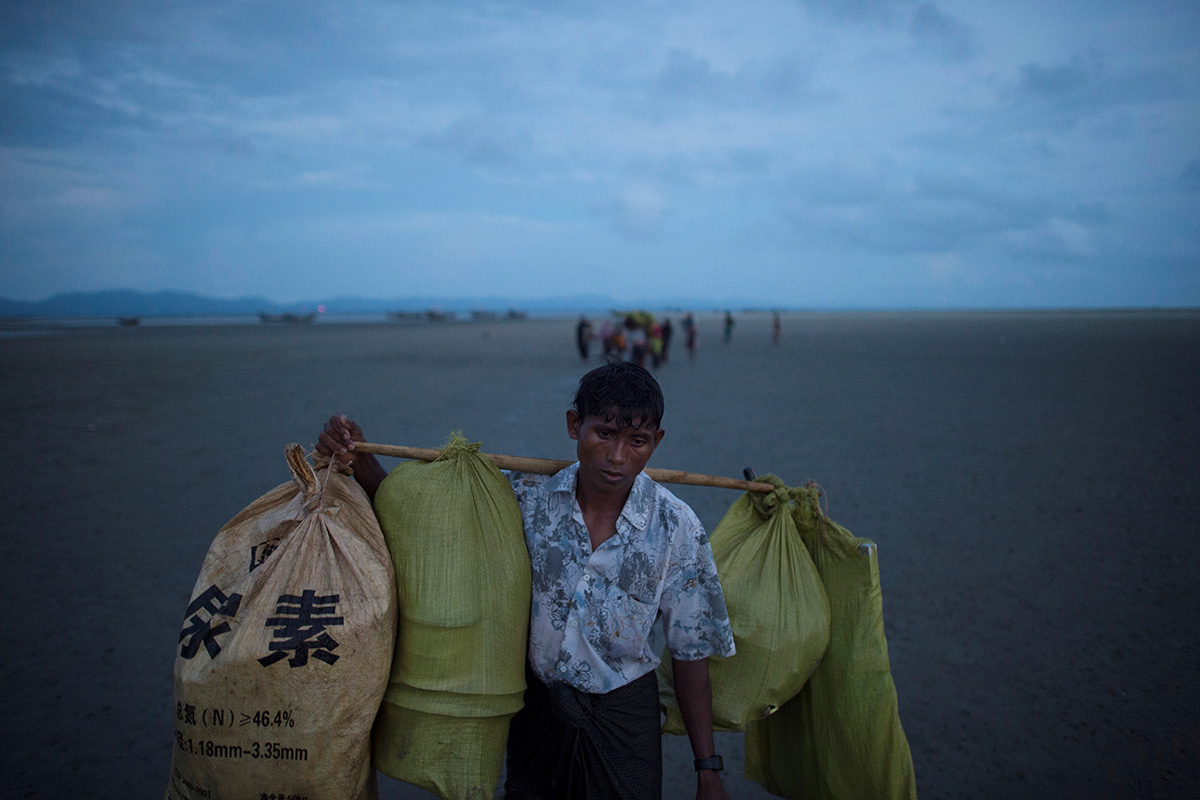More than 2,000 Rohingya have massed along Myanmar's coast this week after trekking from inland villages in Rakhine state to join the refugee exodus to Bangladesh, state media reported Saturday.
They follow more than half a million fellow Rohingya who have emptied out of northern Rakhine in a single month, fleeing an army crackdown and communal violence the UN says amounts to "ethnic cleansing".
The journey to Bangladesh is fraught with danger for the stateless Muslim minority, who have faced decades of systematic oppression in mainly Buddhist Myanmar.
After fleeing burning villages they say were set alight by soldiers and Buddhist mobs, more than 100 Rohingya have drowned in the scramble to cross the Naf river that divides the two countries.
The latest boat capsize on Thursday has left some 60 feared dead, with 23 bodies – mainly of children – brought to shore as dozens more remain missing.
The crowds building up along Rakhine's coast hail from the same inland area – Buthidaung township – as many of those who perished in the boat tragedy.
"Starting on Tuesday, they left their region, claiming that they felt insecure to remain because they were now living in a sparsely populated area, as most of their relatives had left for Bangladesh," the state-run Global New Light of Myanmar reported.
More than half had gathered on a beach near Lay Yin Kwin village, the report said, with photos of women and children clustered together on the sand as security officers looked on.
'Nothing to eat'
It was not clear if or how they would complete the journey to Bangladesh, where the unprecedented influx of refugees has unfurled a separate humanitarian crisis as aid groups struggle to meet their vast needs.
The report said officials tried to assure the Rohingya of their safety in Myanmar but villagers said they "would still like to go to Bangladesh of their own accord".
Chris Lewa from the Arakan project, which closely tracks developments in Rakhine, said economic deprivation and tensions with Buddhist neighbours appear to be the main forces driving the recent movements of Rohingya out of Buthidaung, as opposed to fresh outbreaks of violence.
Crucial aid deliveries have been cut off from the impoverished area since August 25, when Rohingya militant raids on police posts triggered the military backlash that plunged northern Rakhine into crisis.
"The majority are mostly poor who are leaving and have nothing to eat," said Lewa.
"The Rakhine (Buddhist) villages nearby, they are treating them very badly and because of that people are afraid to go out ... they feel they cannot get out of their village to do any livelihood."
The UN has previously reported that increasingly isolated Muslim communities in Rakhine are receiving regular threats from ethnic Rakhine Buddhists to leave the area.
Myanmar denies ethnic cleansing is under way and instead blames Rohingya militants for whipping up the violence, which has also displaced tens of thousands of Rakhine Buddhists and Hindus.
The crisis has inflamed already blistering religious tensions and fuelled a dizzying array of claims and counterclaims from different ethnic groups.
The Muslim Rohingya have been the target of especially acute hatred in Myanmar, where they are denied citizenship and are instead branded "Bengalis" -- or illegal migrants who do not belong in the Buddhist-majority country. – AFP
